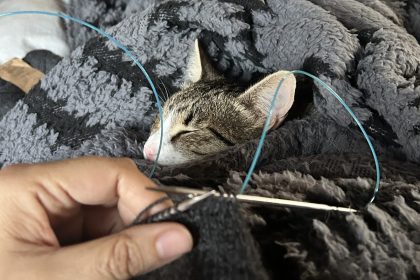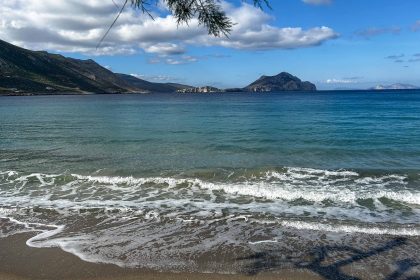I live in a country where it’s difficult to avoid the sun. We’ve been told for at least several generations now that the sun is bad for us and that we should avoid it or use sunscreen to protect our skin. How is it that humanity has survived for so long without sunscreen?
 How do you produce vitamin D? Your skin produces previtamin D3, which the liver and kidneys then convert to active vitamin D3, and is used throughout your body in many ways. Vitamin D helps your body to absorb calcium and phosphorus, which keeps your bones strong. Insufficient vitamin D can lead to brittle bones.
How do you produce vitamin D? Your skin produces previtamin D3, which the liver and kidneys then convert to active vitamin D3, and is used throughout your body in many ways. Vitamin D helps your body to absorb calcium and phosphorus, which keeps your bones strong. Insufficient vitamin D can lead to brittle bones.
Vitamin D is also used in many other bodily processes, including mental health (seasonal affective disorder is caused by a lack of vitamin D in the winter), immune system support, and inflammation regulation, to name only a few. Until the connection was discovered, Rickets was a horrible condition that affected infants and children due to insufficient vitamin D. It would cause bowed legs and other deformities because their bones didn’t have enough calcium and phosphorus. It’s again on the rise, especially in Australia; some think because of the overuse of sunscreen.
The best way to get enough vitamin D is naturally by exposing your skin to the sun for 15-20 minutes each day. I get this much sunshine just by walking to the tiny grocery shop in my village and back home a couple of times a day. There is no need to bake on the beach and risk getting sunburn, which is very bad for the skin. As with everything in life, moderation is key.
 The closer you are to the equator, the less your chance of being deficient. That means most people in North America are at risk for vitamin D deficiency. Does this mean you need to take supplements? It depends. If your diet includes the things I’ve listed below in good quantity and you expose your bare skin to the sun regularly, there’s a good chance you will be able to make enough vitamin D. But if you notice yourself struggling in the winter with feeling down and not having enough energy, you might be deficient, so taking vitamin D3 would be a good idea. You should also make sure that you’re eating enough dark leafy greens like spinach and swiss chard so that your body can absorb the D3. If not, you should also take K2.
The closer you are to the equator, the less your chance of being deficient. That means most people in North America are at risk for vitamin D deficiency. Does this mean you need to take supplements? It depends. If your diet includes the things I’ve listed below in good quantity and you expose your bare skin to the sun regularly, there’s a good chance you will be able to make enough vitamin D. But if you notice yourself struggling in the winter with feeling down and not having enough energy, you might be deficient, so taking vitamin D3 would be a good idea. You should also make sure that you’re eating enough dark leafy greens like spinach and swiss chard so that your body can absorb the D3. If not, you should also take K2.
Using a natural sunblock can help to keep your skin safe if you can’t avoid the exposure, but using chemical-laden sunscreen is a bad idea as they are not only carcinogens (funny that they are supposed to prevent melanoma) but can interfere with your hormones. I don’t use sunscreen or block, I wear hats and sit under an umbrella on the beach. I’ve lived in hot countries much of my life and have few wrinkles and very healthy skin.
 It’s important to remember that just because commercials and “health authorities” tell us something, it doesn’t mean it’s true. Much of the advice given to us is to encourage us to consume more of a product so they can make more money. Sunscreen use started to rise after the Second World War and increased dramatically in the 50s after Coppertone put out their iconic ad of the “Coppertone Girl.” I won’t show it here because it’s copyrighted, but you can see the ad here. Just like the recommended diet has changed so many times over the years based on who was the best lobbyist, the advice we are given on so many things has changed. Eggs are bad for you, now they’re not, and on it goes.
It’s important to remember that just because commercials and “health authorities” tell us something, it doesn’t mean it’s true. Much of the advice given to us is to encourage us to consume more of a product so they can make more money. Sunscreen use started to rise after the Second World War and increased dramatically in the 50s after Coppertone put out their iconic ad of the “Coppertone Girl.” I won’t show it here because it’s copyrighted, but you can see the ad here. Just like the recommended diet has changed so many times over the years based on who was the best lobbyist, the advice we are given on so many things has changed. Eggs are bad for you, now they’re not, and on it goes.
 Eggs, in fact, are an important source of vitamin D. The yolk, not the white, so please don’t use egg whites only. Salmon is another great source (fresh, not farmed), and any other oily fish. My mother used to make me take a spoonful of cod liver oil every morning before school, which I hated, but now I’m grateful she did. The fishy burps were worth it. Mushrooms are another healthy source of the vitamin.
Eggs, in fact, are an important source of vitamin D. The yolk, not the white, so please don’t use egg whites only. Salmon is another great source (fresh, not farmed), and any other oily fish. My mother used to make me take a spoonful of cod liver oil every morning before school, which I hated, but now I’m grateful she did. The fishy burps were worth it. Mushrooms are another healthy source of the vitamin.
Mediterranean cultures have lived with sun exposure for thousands of years, but their cancer rates are lower than the rest of the world. Having darker skin can help, but it also means that your skin won’t make as much vitamin D so you need more exposure to make more of the vitamin. How they have dealt with an abundance of sun is to be smart about it. They have sunbeds with umbrellas at most beaches, or they bring their own. They don’t generally sit out and bake in the sun. They go for a swim in the morning before the sun is at its peak and sleep during the time it’s hottest. Moderation and using your smarts is the best way to care for your health.
If you are concerned about your skin, be smart about your exposure. If you use sunscreen, don’t expose your skin more, and trust it to protect you as it doesn’t block out harmful UVA rays. Wear a hat and use your common sense. Keep hydrated, as this will also help your skin not to dry out. Most of all, eat a healthy balanced diet including dark leafy greens, organic eggs, lots of oily fish like salmon, and a variety of nuts. I prefer to get my vitamins from my diet rather than take supplements. Be sun-smart and take care of your skin, it’s your largest organ and produces the vitamin D your body needs.






